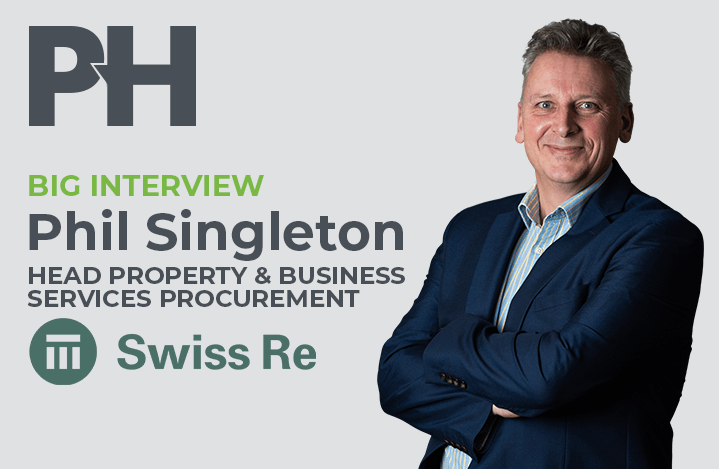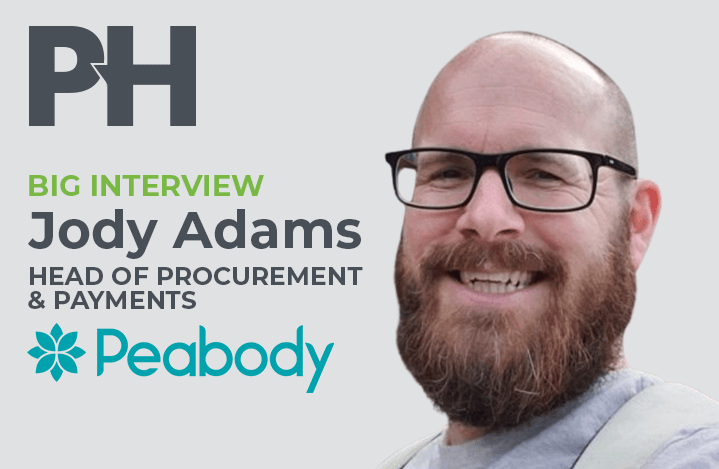For the latest in Procurement Heads‘ Big Interview series, he spoke with Will Cooke about his procurement career, the challenges he and the team are currently facing and how he spends his spare time.
How did you get into procurement?
I suspect, like many people, I fell into it.
Many years ago I took up a job in a retail wholesale environment, buying and selling electronic components.
There were two jobs in the company, one was buying, and one was selling and I made the decision fairly early on that I fancied going down the buying route.
When we still had an electronics manufacturing industry of size in the UK it was a really good grounding and I went on to do a number of different procurement-related jobs in different areas and sectors.
As a small boy, I didn’t want to be a procurement person, but I don’t think many people do, I fell into it, liked it and developed my career.
What are the roles and responsibilities the procurement function holds at your organisation?
That has not been a fixed thing over the time I have been here, it started off as a very small element of the organisation doing what was rather technical and practical buying at the time.
Since then, it has grown to take on more responsibility for some of the kind of technical side of things and take on more downstream responsibilities.
The management and the role have grown from a simple purchaser of goods into a more modern and more mature procurement function and I guess I have seen and been part of that over the years.
We now support the whole supply chain really from the initial sourcing activity right the way through to contract termination, so the whole lifecycle.
What are the main challenges that you and your team are currently facing?
Similar to others I guess, but as what I do is mainly on the indirect side, I only have to talk to some of my colleagues on the direct side to see some of their challenges due to recent geo-political events, so probably the challenges we face pale into insignificance compared to some of that but still it is the supply market disruption caused by those events.
Obviously, the rise of inflation I think because I am quite old, I remember that from previous decades, but it has been some time since we experienced what we are starting to experience now.
I think that rise of uncertainty in the areas we operate in and having to address that in a different way, I remember some of it from a previous life, but I remember it in quite a different way as well.
I think uncertainty is the biggest single area that is challenging us at the moment, but with that challenge comes some benefit, the business needs us more at these times and in these situations.
It has been a challenge, but it has also helped us as well.
What are you most passionate about when it comes to procurement?
It is something I have always done, I have always had a passion for it, I found it suited my way of doing things.
As I get a bit later in life, I realised there are two main things that interest me, one is being able to help people and share my experience and knowledge.
The second one is more about using procurement skills but in new areas, if you like, rather than just the ongoing purchase of goods and services.
I have been lucky enough recently to be involved in merger and acquisition activity and that is something that I think procurement can be a real asset to, I have found that an interesting area to apply your skills to and that is something that I have enjoyed over the past couple of years in particular.
What do you think the key focus areas are for procurement right now?
I think it comes back to that if you think of our role not just as making savings but buying goods and services more effectively, I think that is, even more, the case with the uncertainty of the market right now, I would say that is the biggest thing in that area.
What do you generally look for when hiring?
Again, it is kind of interesting as I think the recruitment market has changed recently.
In the past, you may have looked for key skills that aren’t necessarily mature, but they are there, and it is somebody who has a passion and the ultimate capability to do that.
What I have seen more recently I think because the tenure of roles seems to be getting shorter, I find if I am recruiting myself, I am having to focus on finding somebody who already has those skills and can hit the ground running and there is less time for somebody to develop that, which I think is a shame.
I think it is probably deterring people from taking a longer-term view from procurement and we are finding ourselves a little bit more plugging gaps in the organisation rather than looking for people to come in who have a longer-term development capability and who we can work with and mould to fit what is needed.
I would like to say the right person with the right future skills, I think in practice it is a bit more the right person who can come in straight away and do that job.
What are your team and organisation doing with regard to sustainable procurement?
I run a global category team generally in the real estate, facilities, marketing travel, events area so I have a reasonable portfolio of that and Swiss Re has a very keen interest in sustainability, not just from the point of view of buying sustainable products but obviously as a large reinsurer we are also very susceptible to global events, many of which are caused by changes in climate and that type of thing as well so we have a very direct interest as this and have pushed it forward.
A few things we are doing might be considered the more obvious stuff in terms of buying sustainable energy, making sustainable decisions when it comes to buildings and managing our travel from a CO2 point of view and looking at our employees to help us reduce our CO2 usage over time as well.
Other than, for example, travel is very much a question of cost, it is very much now a question of CO2 impact.
Also, I take a personal interest in this and have been involved in a number of purchases of both carbon credits and something that we have been a bit of a pioneer on in the last couple of years and that is the investment in carbon removal technology.
We signed a big contract with a company last year that is very directly involved in carbon removal from the atmosphere, and we see this as a way of further contributing to this and developing that market.
It is likely to be one of the bigger future markets, but it is not getting the level of investment as it is not mature.
We are doing quite a lot all in all!
What is your biggest achievement in your career?
Sometimes it is easy to talk about big contracts isn’t it, those are the ones you remember.
So in the past, I have done different categories, I have been involved in IT and telecoms, for example, and I remember working for a previous company on a contract that in the end was worth more than half a billion!
Was that the biggest achievement? In terms of how long it took and the success of it yes probably, but I think you should also look beyond that, it is not just about those big events in your career, I think it comes back to the people.
What I get much more pleasure from these days is seeing people grow and progress in my team and creating a well-functioning efficient team of people who are not necessarily happy but content in the roles and progressing in the roles that they are doing.
Yes, there have been some big contracts but in the end, it comes back to people and this other side of applying your skills into environments where you are using the broader procurement skills you have got but applying them in an area that really adds value to the business perhaps in a different way than just removing costs from the bottom line, although of course, that is important too.
What inspires you as a procurement leader?
You can’t help but be inspired by the people around you and again I have been very pleased to have worked for some people who are truly inspiring.
Not all and not all universally.
You think about the people you have worked around and the different bits of them you have found inspiring and sometimes if you could piece them all together and make the perfect person that is great.
You see behaviours and things people do that are individually inspiring and all you can do is try and learn from that in terms of making your own contribution a bit more like that in that particular way.
What advice would you give to someone embarking on a procurement career?
I think it is a great understated career, I know this has been a topic for decades!
We start to see more people getting a bit more interested.
I think we have a long way to go in terms of the function and how it operates, I think we are still plagued by our reputation and our behaviours.
It is seen as a process as all about cost and that inhibits us, it is seen as a barrier, but we just need to keep plugging away at it.
I would tell someone not to think it is just a process, not to just worry about the technical skills, yes, they are important to learn about supply markets and about good practice and contracting, but in the end, it is a people business and with all of that you need to apply it.
You are working as an important part of an overall business who you need to work with.
Sometimes it is about everybody doing a bit of purchasing themselves in their own lives, I think if you are just coming in really focus on that interpersonal part that is the bit that gets you somewhere, build those relationships, then your technical capability can shine through.
That would be my advice.
What do you think are the current procurement trends and what roles will we start to see as a result of those?
I am not going to talk too much about the technical side of things but clearly the ability to manage data well and better as there is just so much around, and I think that is one of the key elements to it.
I think so much more is expected of us, if you take the example of supplier governance, massive growth particularly in financial services and the need to kind of understand and check our vendors in terms of making sure there is nothing untoward and to take that away from a tick box exercise means that that data kind of has to be managed very effectively and in an automated way.
There is very little in the way of a mature demonstration of that at the moment.
The capability is there but it is just joining all of that up.
I think many procurement teams are having to spend so much time manually manipulating data to fit the governance structure we have in place, and I think one of the key opportunities is to sort it out and make it work for us but we are not there yet.
I think procurement systems are getting better and are getting more intuitive and I think the rise of Amazon and the likes of that where people are more getting used to making purchases at the click of a button, I think that hasn’t translated into the corporate world, you can see it has started to happen, but it has not quite happened yet.
Online catalogues and being able to pull that data has never quite materialised.
We need to learn from that and continue to develop that on the commercial side as well.
People come to work and don’t find the same kind of intuitive tools when they come to work as they are able to buy at the click of a button at home.
Then once you have that process and transactional side under control you are then able to focus on the more strategic type of stuff.
What skills do you consider to be essential for a procurement professional?
You have to have the basic technical skills and understanding of how processes and contracting work but that is really just the foundation.
It is very much a people business in terms of the vendors.
You are the window to the world from the organisation or you should be.
You’re helping the business to understand the external market and I think that is a key skill.
You are bringing the business to the vendor and the vendor to the business.
Understanding that function is the skilful bit.
Anyone can sit there and bang the table and demand this and that, but it is very much about influencing skills – how do you influence the vendor and how do you encourage our business to attract the right vendor.
You could call it an introduction agency!
It is about using people skills both internally and externally.
That is the real skill of what we do, and it is not easy it is challenging on each side of the fence really.
What do you like doing in your spare time?
I am fortunate at the moment as I have found myself with two grown-up sons, so I have a bit more spare time than I have for some time now.
I used to play a lot of rugby, but not anymore I am way too old!
I still like to watch it though; I am a Gloucester supporter – for my sins.
I have a reasonably large garden and am a keen gardener, which is one of the interests I share with my wife and last but not least I am a very keen fly fisherman – that is what I like doing in my spare time.

If you could give advice to your younger self, what would it be?
Some people have their life mapped out; I have never been quite like that.
I have very much been very keen in terms of the role that I am doing and where I need to go in the future.
I would advise myself to take a slightly longer view, my younger self was a little bit more reactive to the situations I was in and a little bit shorter term with things.
I would say just remember you are on this planet for a long time and probably encourage myself to look forward a little more than I did in my younger days.
Tell us an interesting fact about yourself
I once spent some time in jail!
I need to explain that a little bit!
I told you I used to play a bit of rugby and we used to play against one of the local prisons every so often, so we were invited into the maximum security prison.
It was quite an experience to go in there for a day, play a bit of rugby and really get out as quickly as possible!






